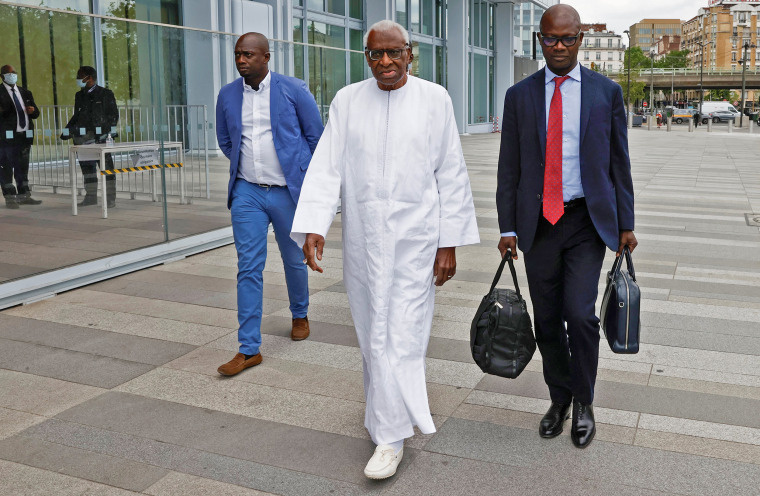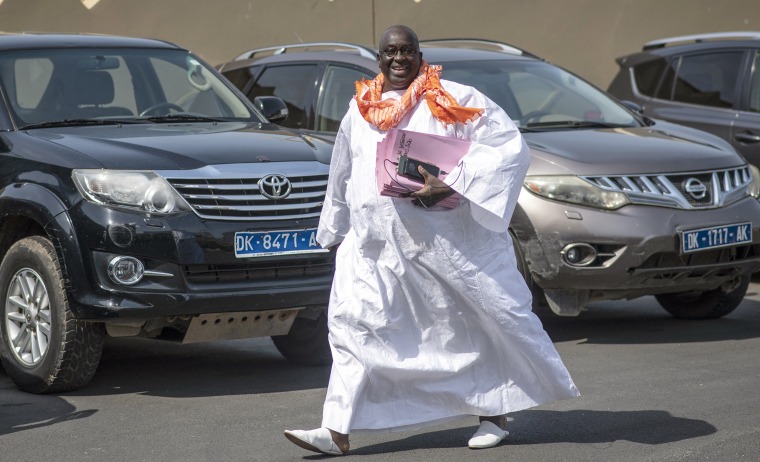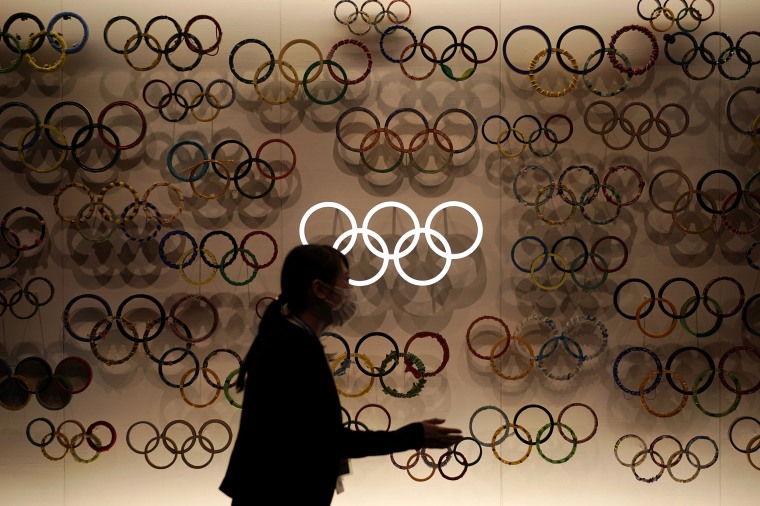The Tokyo Olympics, postponed to next summer because of the Covid-19 pandemic, are facing renewed scrutiny over allegations that the city's bid to host the games was secured by millions of dollars in bribes laundered through the international banking system.
A team of more than a dozen French prosecutors and police investigators is investigating allegations of corruption associated with the Tokyo Olympics bid, according to a top French prosecutor with oversight of the investigation. The inquiry grew out of a five-year investigation into Russian bribes that allowed athletes to compete despite positive doping tests, which resulted in multiple convictions by a French court last week.
The scope of the scheme has surprised some French investigators, who anticipate that the investigations could broaden to include other major events. "Corruption in some form must exist in every major sporting event," a law enforcement source said. "The possibilit[ies] of briberies are endless."
Both the case that was just decided and the Tokyo Olympics investigation center on payments made to a Senegalese father and son duo. For more than 15 years, Lamine Diack ran the International Association of Athletics Federations, or IAAF, recently renamed World Athletics, the largest Olympic sport federation. His son Papa Massata Diack worked as a marketing consultant for the IAAF.
In the case that was just decided, French prosecutors alleged that the Diacks and associates solicited about $4 million from athletes suspected by the IAAF of doping in return for hiding positive tests. Jean-Francois Bohnert, the head of France's National Financial Prosecutor's Office, confirmed to NBC News that the Diacks are a focus of the Tokyo bid case.
Speaking more broadly about global sporting events, Bohnert said, "We see some mechanism of corruption" associated with the Olympic Games. "Our place is ... to trace and track when corruption is at stake."
Bohnert said that the Olympics bribery investigation is ongoing and that it is too early to determine whether additional sporting events were involved. He did not provide an estimate of when the investigation might be complete.
Bohnert said international sports attract criminal activity for two reasons: huge amounts of money that is easily circulated around the world through the international banking system and a lack of institutional oversight. There is insufficient oversight within the individual sporting organizations, Bohnert said, and as a group they are not accountable to any unified global legal authority.
"When there is some vacuum space," Bohnert said, "some very — interesting people [come] into that field in order to make their unlawful activities."

The Diacks, who deny wrongdoing, were convicted last week by a French court of accepting bribes in exchange for stonewalling punishments for Russian athletes who tested positive for doping. The elder Diack, who is 87, was sentenced to two years in prison and a 500,000-euro fine. Son Papa Massata Diack, who remained in Senegal, was sentenced in absentia to five years in prison and a 1 million-euro fine. The Senegalese government has refused to extradite him.
"You have seriously undermined the fight against doping," Judge Rose-Marie Hunault said in handing down the verdicts and the sentences.
Lawyers for both Diacks have submitted paperwork to appeal the verdicts.
Separately, secret bank records examined by NBC News include a spreadsheet listing 112 transactions totaling more than $55 million flowing in and out of bank accounts linked to the Diacks, including accounts tied to the Russian doping scandal.
The records, known as suspicious activity reports, or SARs, are filed by banks and other financial institutions to alert law enforcement to potentially illegal transactions, but they do not necessarily represent evidence of illegal activity. The reports, which are filed to the U.S. government's Financial Crimes Enforcement Network, or FinCEN, are highly confidential and closely guarded by both banks and authorities.
The leaked documents are part of the FinCEN Files, a collaboration with the International Consortium of Investigative Journalists, BuzzFeed News and about 400 reporters around the world. The leaked documents were obtained by BuzzFeed. To examine transactions related to the Olympics, NBC News partnered with reporters from Radio France, the International Consortium of Investigative Journalists and the Japanese news organizations Asahi Shimbun and Kyodo News.

One FinCEN document traces the flow of $2.3 million from a bank account belonging to the Tokyo Organizing Committee at the time it was trying to secure the games. According to the document, the funds went to an account in Singapore controlled by a friend of Papa Massata Diack's shortly before and after the 2013 vote selecting Tokyo as the host city for the 2020 Games.
Hundreds of thousands of dollars were then sent from Singapore to accounts controlled by the Diacks in Senegal, according to the document, as well as to luxury car dealerships in Dubai, a jewelry dealer in the United Arab Emirates and a travel company based in Senegal.
The New York branch of Standard Chartered Bank had oversight of the transactions because it was the correspondent bank, providing services to a foreign bank in order for business to be conducted in dollars. The world's financial industry relies largely on doing business in U.S. dollars, and correspondent banking is a routine and crucial part of the international financial system that enables global trade, allowing money to flow across borders almost instantaneously.
Correspondent banks like Standard Chartered are required to file suspicious activity reports with FinCEN when they identify unusual transactions.
In the case of the money coming out of the Tokyo Organizing Committee, Standard Chartered submitted a report more than two years after the transactions, after the World Anti-Doping Agency and media accounts raised questions about the Diacks. It listed red flags that made the transactions suspicious, including payments in round dollar amounts and the fact that Papa Massata Diack was identified as a politically exposed person, potentially at greater risk for corruption because of his position.
These are hallmarks of illicit cash flows, said Graham Barrow, a London-based anti-money laundering expert. He examined the documents for NBC News and said that while Standard Chartered fulfilled its legal requirements by reporting the transactions, he questioned whether it was too slow to notice red flags.
"That made my jaw drop," he said. "That's really worrying."
"You would have thought that payments of that size coming out of the Tokyo 2020 Committee would be subject to particularly significant scrutiny," said Barrow, who added that reports like these raise questions about regulations and oversight to prevent money laundering. "It's clearly not working very well," he said.
Standard Chartered declined to discuss the transactions. It said in a statement: "Since 2014 we have significantly stepped up the rigor of our screening and exited clients who could not meet our high standards, significantly reducing the risk to our business. We've invested in training all our staff and building robust compliance systems, including nearly 2,000 staff worldwide dedicated to preventing, detecting and reporting suspicious transactions. In 2019 Standard Chartered screened more than 157 million transactions for compliance with applicable sanctions requirements and monitored more than 1.2 billion transactions for potential suspicious activity."
A Standard Chartered bank official said it is not unusual for a SAR to be filed some time after transactions, because it can take a pattern of payments or the discovery of additional information to reach the filing threshold.
FinCEN has declined to discuss the documents with reporters. It has condemned the leak and said it has referred the matter to the Justice Department and the Treasury Department's inspector general.
A Japanese commission investigated the payments in 2016 and concluded that they were not bribes and did not violate the law. The investigation was unable to interview the Diacks or the owner of Black Tidings Co., the Singapore company that received the payments.
Haruyuki Takahashi, a businessman who worked on the Tokyo bid, said nothing improper occurred. "I have never paid any money to Diack," he told Japan's Asahi Shimbun newspaper, NBC News' partner for this article, on the eve of the verdict, adding that he did give Lamine Diack a Seiko watch valued at several hundred dollars and a Canon digital camera worth about $100, both within allowable limits for gifts.
"In regard to the bidding process for the Tokyo Games, I asked Diack and others for their cooperation and they all supported our cause with passion. And in the end everything fell neatly into place. I felt really grateful," he said in a statement.
The Diacks' denial
The Diacks, meanwhile, maintain their innocence and have submitted paperwork to begin the appeals process.
Lamine Diack's lawyer Simon Ndiaye spoke outside the courtroom after the verdict, calling the ruling "unjust" and "inhuman," and he suggested that his client was sacrificed in the name of political correctness.
In an interview from his home in Senegal, Papa Massata Diack said he forcefully rejected the conclusions of the French court, alleging that his "defense rights" were violated during the trial in June.
In declining to extradite the younger Diack four years ago, Senegal's prime minister at the time said, "We will never surrender a son." French prosecutors said there is still an outstanding warrant for Papa Massata Diack's arrest. The French Europe and Foreign Affairs Ministry, the French Justice Ministry and the Senegalese Embassy in Washington did not immediately respond to requests for comment.
Describing himself as "a seller of dreams," the younger Diack served as a marketing consultant for the IAAF from 2001 to 2002 and from 2007 to 2015, during his father's tenure, connecting sponsors and broadcasters with large athletic events. He asserted that the allegations of bribery are a "conspiracy" orchestrated by his father's rivals in the International Olympic Committee and the IAAF to oust him from office.
"These allegations are totally, totally unsubstantiated," he said. "After five years of investigation, show me the film of Massata Diack receiving a bag of cash in a hotel in Moscow or receiving payment ... from Tokyo or from Rio some money and that money was sent to IOC members!"
"I never met [an] athlete, I have never met any Russian officials asking me for any favor," he said, emphasizing that he was a consultant and not an employee privy to any internal decision-making at the IAAF at the time.
He acknowledged that it may have been a mistake for him to work closely for his father while the elder Diack was the head of the IAAF, but he denied that improper activity took place. He said he and his father's support of the Tokyo and Rio 2016 Olympic bids was the result of their long-standing business relationships with corporations in both countries, not pressure to deliver votes in exchange for funds. He said flows of money that French prosecutors have identified as potential bribes and as the fruits of money laundering are simply the products of doing business around the world.
The French prosecutors believe the Diacks' convictions are a sign that international sports can be cleaned up and hope more laws are passed to ensure the integrity of future international sporting events.
"People have to be confident in sport, that sport is something honest, especially the Olympic Games," Bohnert said. "That's really a problem for everybody in the world."



